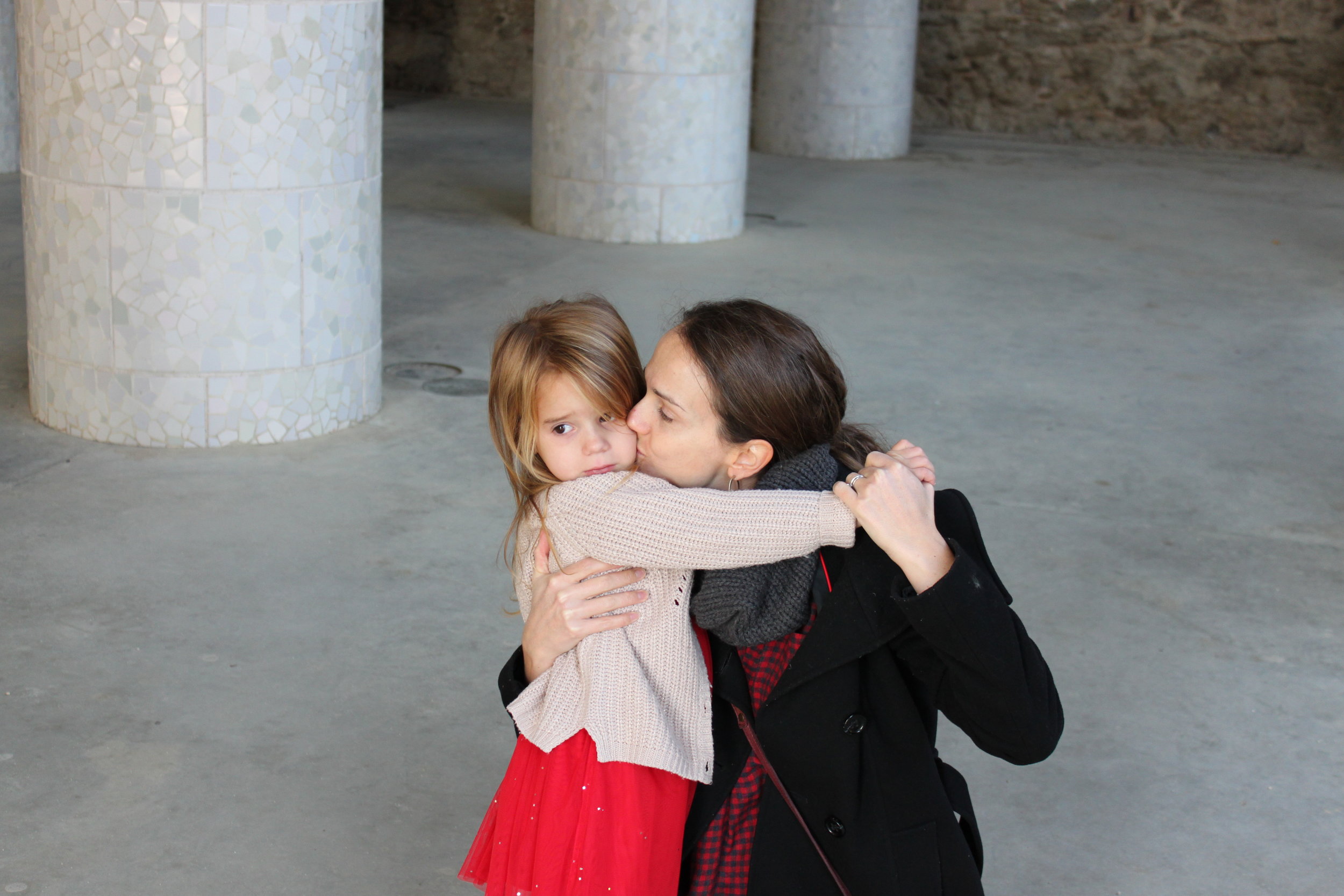NAVIDAD IN BARCELONA
/The temperatures have dipped below 60, and suddenly folks are all dressed up like eskimos. A utility crew just installed an unreasonably radiant holiday light fixture right outside our bedroom window, which has helped to make the season bright. And now Santas all over town are handing out inappropriately hard candies to tiny tots with their eyes all aglow. It can only mean one thing: it's Navidad in Barcelona.
This year we're staying in Europe for the holidays and importing "Yaya and Boppy" from the States. We're going to spend some time in Barcelona and tack on a one-week Christmas detour to Austria. (We couldn't resist Round 2 of the Vienna markets and a few nights in Salzburg, where I intend to sing The Sound of Music soundtrack on repeat until my kids have their inaugural bout of mom-embarrassment.)
It's quite delightful to see how a whole separate part of the world prepares for the impending holidays. For instance, we've discovered that Catalans — an otherwise refined, buttoned-up people — are blessed with a bewildering array of poop-related Christmas traditions. Virtually every tchotchke store has currently stocked some version of a caga tió, an anthropomorphized log that children "feed" for days leading up to Christmas. (Parenting fail: our tió "forgot" to "eat" the mandarina it had been fed on Night #1. Oops.) After being sufficiently fattened up, the log is ultimately beaten with a stick (ironic, no?) until it obediently poops out sweet treats and other goodies. There is an even more ridiculous song that accompanies the already-ridiculous beating (and thus corroborates my story). It is violence, spoiled brattiness, and literal shit all rolled up into one very merry holiday tradition.
Poo-ing logs not your thing? How about a poo-ing human? In another distinctly Catalan tradition, caganers (literally: shitters) are also widely available for discrete (or not so discrete) placement in your at-home nativity scene. The traditional version is a generic peasant wearing a red cap and white shirt, but the local Christmas markets offer a poo-ing version of virtually any other person (or cartoon character, religious figure, or "other") you could ask for. (Does anyone not feel merrier with a poo-ing Trump in their living room?) Of course, you know the whole thing is a little much when even a 6-year-old boy is grossed out by the new family caganer (who's kickin' it next to the caga tió on the bookshelf).
There are also very sweet (and dinner-table-appropriate) traditions, too. Christmas here is more or less a Thanksgiving-like holiday — packed with family and long meals, not gifts — but it is decidedly second fiddle to the Three Kings (Los Reyes Magos). There's a huge parade on the evening of January 5, which is when the Kings arrive in the Port of Barcelona by boat and then process through the heart of the city center. It's the Three Kings (not Santa) who deliver toys on the morning of January 6.
Naturally, after being surrounded by dozens of classmates who are anxiously awaiting the Three Kings' arrival, our children are also expecting a visit from these exotic new gift-givers. But between Christmas day in Austria, a belated-Christmas back in Barcelona, and now the introduction of Three Kings, this is turning into a bit of a parenting puzzle. I'm not entirely sure how or where we'll give the kids gifts, or which magical, mythical being will get to steal my credit for bringing them. But at this point I can say one thing for sure: none of the cool ones are coming from the bum of a log.





































